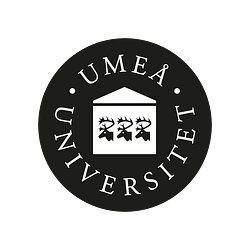Press release -
International students give Umeå University top marks for satisfaction
Umeå University has been ranked first in Sweden and fifth globally for student satisfaction according to the International Student Barometer (ISB). The survey was responded by international students from 208 universities in Europe and throughout the world.
"It is fantasically pleasing that Umeå University has placed so high in the survey," says Anders Fällström, Deputy Vice-Chancellor at Umeå University. "We are diligently working to increase the number of international students and being successful with this is evidence that the students at our university today are really satisfied here."
Global top in living, support and learning
Umeå University placed in the global top in the main categories of living, support and learning. The students also indicated that the university is a very multicultural environment. Among the 13 participanting higher educational institutions in Sweden, Umeå University received the highest marks in 14 sub-categories, such as course organisation, internet access, learning support, accomodation office and sport facilities.
Umeå University had the highest overall average in Sweden for all questions in the ISB survey, which can be seen as the most accurate indicator of overall student satisfaction. The university received a second place ranking in Sweden and fifth globally for the individual question: "Overall, how satisfied are you with all aspects of your University experience?"
Ranked 1st in the world for internet access and accomodation office
When measured against all 208 participating institutions, Umeå University was in the top ten in a total of 20 sub-categories, including being ranked first for internet access and accommodation office during arrival.
"It is a great achievement to continue to be at the top for three consecutive years," explains Per A. Nilsson, Director of the International Office at Umeå University. "One thing that stands out is the service done by our International Housing Office, which was ranked best in the whole survey."
One of the reasons why Per A. Nilsson thinks international students are so satisfied is the Buddy Programme, which is a service that all international students have the opportunity to participate in.
"It makes is easier for international students to have contact with other students on campus," he says. "It offers variety of group activities such as sports, social events and travel, or just having a cup of coffee with fellow group members. I think it’s an important factor why we have received the highest marks from students, in addition to that they are very pleased with the quality of courses and programmes."
Swedish universities performed well in the ISB survey. The positive factors that came forward include that Sweden is a safe and secure country to live in, the educational and research standards are high and that the people are friendly.
"We will certainly use the results from the survey so that we can be even better," explains Anders Fällström. "Umeå University needs to improve in areas such as career guidance and opportunities for part-time jobs, like the majority of higher education institutions in Sweden."
The ISB survey was developed and administered by the International Graduate Insight Group (i-graduate) and has been responded by exchange students and other international students. A total of 209,422 students participated in the International Student Barometer survey during October to December of 2011.
Read more at:
www.umu.se/english/education/satisfied-students
For further information, please contact:
Per A. Nilsson, International Office Director
E-mail: per.nilsson@adm.umu.se
Phone: +46 (0)90-786 68 66
Mobile: +46 (0)70-236 62 30
Anders Fällström, Deputy Vice-Chancellor for Education, Umeå University
E-mail: anders.fallstrom@adm.umu.se
Mobile: +46 070-493 85 27
